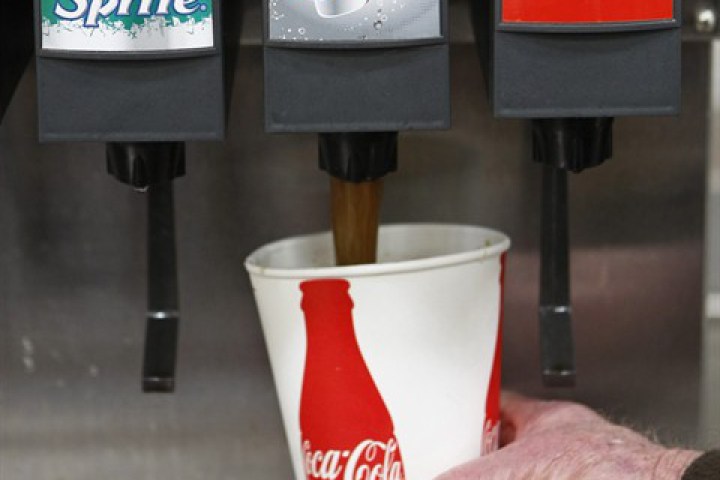If you’re sipping on diet soda to cut back on calories and slim down, U.S. researchers are throwing a wrench into your diet plans.

New research out of the University of Texas is warning that diet soda could be contributing to weight gain, especially when it comes to abdominal fat.
The findings are adding to growing research about the drawbacks of diet soda when it comes to healthy eating.
“Regular sugar has caloric consequences. Your body is used to knowing that a sweet taste means you are ingesting energy in the form of calories that, if you don’t burn them off, is going to convert to fat,” Dr. Helen Hazuda, the study’s senior author, told U.S. media outlets.
Turning to Diet Coke or other artificially sweetened drinks to shave calories from your diet sounds like common sense, but Hazuda says the zero calorie drink confuses our brains and our bodies.
READ MORE: Why diet soda may be making you eat more
Hazuda’s study zeroes in on seniors: 750 Americans who were 65 and older were followed for a decade while they answered questions about their diet, soda intake, exercise levels and other lifestyle habits. Their height, weight and waist circumference were recorded at the start of the study and again at three follow-ups.
- Canadian man dies during Texas Ironman event. His widow wants answers as to why
- ‘Sciatica was gone’: hospital performs robot-assisted spinal surgery in Canadian first
- Canadians more likely to eat food past best-before date. What are the risks?
- Invasive strep: ‘Don’t wait’ to seek care, N.S. woman warns on long road to recovery
At the first follow-up, there were 474 surviving participants, 413 at the second check point and 375 at the end of the study.
READ MORE: Sweeteners create cocaine-like addictions: Canadian study
The researchers noticed a pattern: people who drank the most diet soda – which was at least once a day – saw the biggest increases in their waist size. That group grew around the waist three times more than their counterparts who didn’t drink any diet soda.
Waist circumference increased by 0.8 inches for people who avoided diet soda, 1.83 inches in occasional drinkers and 3.16 inches for daily drinkers. That’s after scientists adjusted for other factors, including smoking and exercise.
Last year, Johns Hopkins University scientists said that, based on their findings, diners who guzzle diet soda actually eat more calories from food compared to their counterparts who choose sugary drinks.
READ MORE: Coke changes recipe; Pepsi still contains cancer-causing chemical, U.S. watchdog says
“Although overweight and obese adults who drink diet soda eat a comparable amount of total calories as heavier adults who drink sugary beverages, they consume significantly more calories from solid food at both meals and snacks,” Dr. Sara Bleich, a professor at the university’s Bloomberg School, said in a statement.
“The push to diet soda may not make a lot of sense,” Bleich said.
It’s been said time and time again: dieters turning to diet soda end up compensating for those zero-calorie drinks by eating more. It could be by justifying a second helping of dinner because they saved the 165 calories they would have got from a can of Coke. Or, say, eating two cookies at break if they opted for a diet beverage at lunch instead of a latte.
For its part, the American Beverage Association says that the study is looking at an aging population who was already at risk of weight gain and heart disease.
““Previous research, including human clinical trials, supports that diet beverages are an effective tool as part of an overall weight management plan. Numerous studies have repeatedly demonstrated the benefits of diet beverages – as well as low-calorie sweeteners, which are in thousands of foods and beverages – in helping to reduce calorie intake,” the organization said in a statement.
READ MORE: Could sugar substitutes cause diabetes?
Consumption of diet soda has skyrocketed over the past few decades. In 1965, only three per cent of people were drinking diet soda. By 2013, it’s about 20 per cent. People who drink diet soda typically have higher body mass index and graze on more snacks.
Other research has even pointed to artificial sweeteners disrupting the brain’s sensors and feelings of satisfaction.
Hazuda’s full findings were published in the Journal of the American Geriatrics Society. Read the full study here.
carmen.chai@globalnews.ca
Follow @Carmen_Chai




Comments